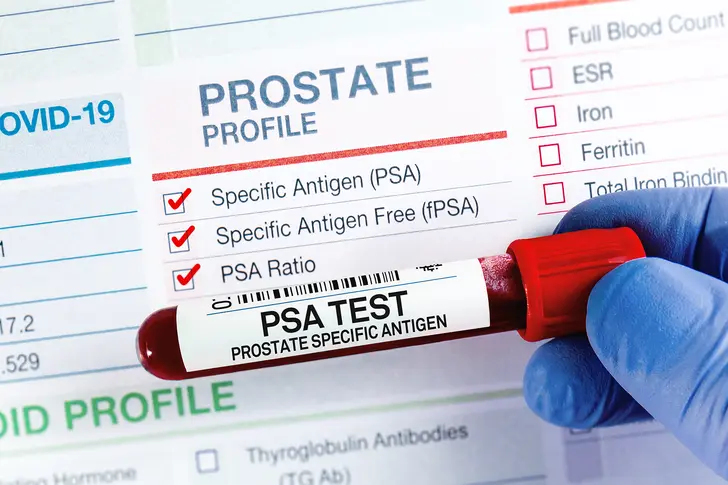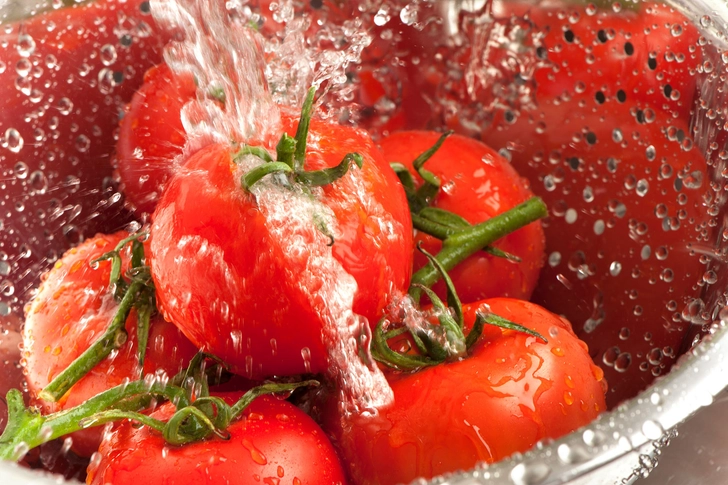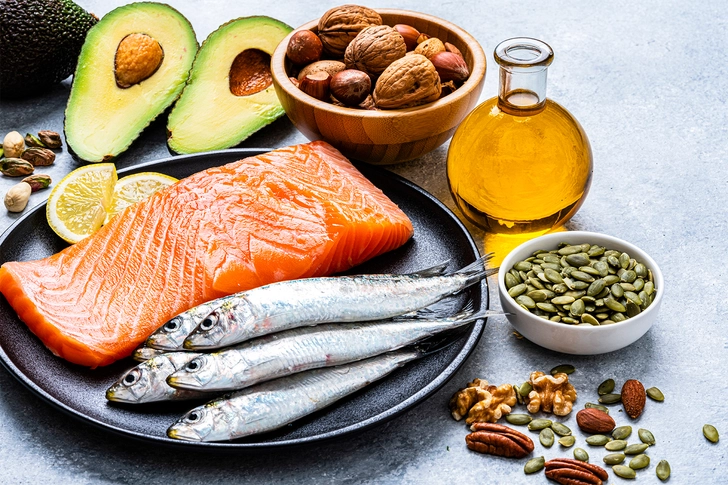- Overview
- Causes & Risks
- Symptoms, Stages & Types
- Tests & Diagnosis
- Your Prostate Cancer Care Team
- Treatment
- Remission & Recurrence
- Living With
- Support & Resources
- Appointment Prep
- View Full Guide
How to Lower Your PSA Levels Naturally



What Are PSA Levels?
Your normal prostate cells as well as cancer cells can make a protein called prostate-specific antigen (PSA). Higher-than-normal PSA levels can often mean extra testing to figure out what's going on. Here are some of the best ways to naturally lower and balance your PSA levels.

Add More Plant-Based Foods to Your Plate
To help your immune system fight cancer, eat lots of plant-based foods. Fruits and veggies contain healthy substances such as:
Antioxidants
Lycopene
Sulforaphane
You can try to eat a balanced diet full of:
- Fruits like pink grapefruit and guava
- Vegetables like broccoli, cauliflower, and Brussels sprouts
- Legumes, nuts, and whole grains

Eat More Tomatoes
Look for colorful red and orange produce that are full of lycopene, a powerful antioxidant:
- Tomatoes
- Watermelon
- Apricots
Many of these fruits and veggies can help lower inflammation to support prostate health. Although the research isn’t clear, foods rich in lycopene may also lower your overall cancer risk, too.

Embrace Healthy Fats
Cut back on saturated fats from red meat and dairy. Some experts think unhealthy fats can raise your risk of prostate cancer. Instead, add plant-based fats to your diet, such as:
- Nuts
- Avocados
- Olive oil
- Fish like salmon, sardines, and mackerel

Move Your Body Daily
Walk, lift weights, or swim to exercise a little bit each day. You can gain many benefits as you work up to a weekly goal. Being active may:
- Lower inflammation
- Support a healthy weight
- Boost your mood
- Lower your PSA levels
It's not clear, but some studies show higher PSA levels for a short time after riding a bike. Talk to your doctor if you've gone riding before your blood test.

Maintain a Healthy Weight
Try to exercise regularly and eat a well-balanced, low-fat diet. Some studies found:
- Higher PSA levels may be linked to obesity.
- Excess weight may raise your risk of prostate cancer.
Reaching your target weight is a great way to support a healthy prostate and your overall well-being.

Take Vitamin D as Recommended
Vitamin D may help prostate health, but it's still unclear. The vitamin is key for healthy bones and getting enough calcium. Be sure to get enough vitamin D from foods such as:
- Fatty fish
- Leafy greens
- Milk and yogurt
- Fortified cereals and orange juice
Your body also makes vitamin D when you're in the sun. You can also take vitamin D supplements, but check with your doctor first.

Practice Stress Management
Chronic stress can take a toll on your body. Stress can raise inflammation, which can lead to higher PSA levels. Ease your stress by trying:
- Meditation
- Yoga
- Deep breathing
- Exercise
- Socializing
Even laughing can help – watch a funny show or read some silly jokes. Keep a journal or spend time with good friends.

Stop Smoking
If you use tobacco, quit or cut back. Quitting or cutting back on tobacco benefits your health and may lower your PSA levels. Some studies suggest that people who smoke have:
- Higher PSA levels
- A higher chance of prostate cancer returning, if you've had it
Work with your doctor on a plan to help you cut out tobacco.

Monitor PSA Levels Regularly
Be sure to talk about any lifestyle changes with your doctor. They'll help with your PSA level screenings, which usually start around age 55.
You'll typically get retested every two to three years. But work with your doctor to see how often is right for your health.
IMAGES PROVIDED BY:
- iStock/Getty Images
- iStock/Getty Images
- iStock/Getty Images
- E+/Getty Images
- E+/Getty Images
- iStock/Getty Images
- Moment/Getty Images
- iStock/Getty Images
- iStock/Getty Images
- Morsa Images/Getty Images
SOURCES:
American Cancer Society: "Can Prostate Cancer Be Prevented?" "Screening Tests for Prostate Cancer."
Mayo Clinic: "PSA Test," "Prostate cancer prevention: Ways to reduce your risk," "Stress relievers: Tips to tame stress."
Urologia Internationalis: "Cruciferous Vegetable Intake and Risk of Prostate Cancer: A Systematic Review and Meta-Analysis."
National Library of Medicine: "Prostate Cancer, Nutrition, and Dietary Supplements (PDQ)."
Frontiers in Oncology: "Lifestyle and risk factors associated with elevated prostate-specific antigen levels in rural men: implications for health counseling."
Genitourinary (Prostate) Cancer: "Negative association of smoking with PSA and PSA velocity."
Society for Endocrinology: "How does obesity affect PSA?"
Cleveland Clinic: "Elevated PSA (Prostate-Specific Antigen) Level."
Harvard Health Publishing: "Ejaculation frequency and prostate cancer."
Nutrients: "Dietary Factors and Supplements Influencing Prostate-Specific Antigen (PSA) Concentrations in Men with Prostate Cancer and Increased Cancer Risk: An Evidence Analysis Review Based on Randomized Controlled Trials," "The Impact of Exercise on Improving Body Composition and PSA in High-Risk Prostate Cancer Patients on Androgen-Deprivation Therapy," "Soy Consumption and the Risk of Prostate Cancer: An Updated Systematic Review and Meta-Analysis."
Johns Hopkins Medicine: "Prostate Cancer: Prevention," "Age-Specific Screening Guidelines," "Charred Food Bad, Veggies Good for the Prostate," "Two Non-Cancerous Causes for Higher PSA."
Prostate Cancer Free Foundation: "Nutrition and Prostate Cancer," "What is PSA?" "What are Some Other Causes of a High PSA?"
The University of Kansas Cancer Center: "Ways to Reduce Your Risk of Prostate Cancer."
Southern Medical Journal: "Effects of commercially available soy products on PSA in androgen-deprivation-naïve and castration-resistant prostate cancer."
World Journal of Clinical Oncology: "Unlocking the potential-vitamin D in prostate cancer prevention."
Cancer Research UK: "Food controversies and supplements for prostate cancer."